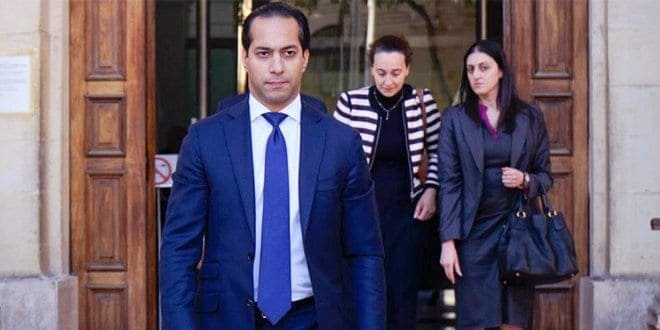
One of the largest news organisations in the world, the Associated Press, has asked the trial judge that released Ali Sadr Hashemi Nejad not to keep sealed and secret documents filed by US prosecutors following Ali Sadr’s release.
The documents were filed by the US attorney’s office in response to a court order when US District Judge Alison Nathan ordered prosecutors to provide documents that explain how the US government withheld evidence from Ali Sadr’s defence team during the trial.
Ali Sadr, who owned scandal-ridden Pilatus Bank in Malta, was found guilty earlier this year of charges of busting sanctions against Iran and of bank fraud. He was awaiting sentencing in August that could have seen him spend the rest of his life in prison. But in between verdict and sentence, a new head of the prosecution office in the Southern District of New York asked Judge Nathan to drop the case against Ali Sadr.
They did that because prosecutors admitted to “Brady violations”, that is not providing to the defence team evidence in possession of prosecutors that could exculpate the defendant. Ali Sadr was released from house arrest while Judge Alison Nathan started looking into the failures of the prosecution office. Her findings can lead to disciplinary action against prosecutors.
Disciplinary proceedings on lawyers are usually confidential processes and the US attorney’s office asked Judge Nathan to keep their answers secret.
But news agency AP filed in court today to tell Judge Nathan the public interest in the case demanded that the US attorneys’ responses should be published.
“The prosecution of Ali Sadr Hashemi Nejad is of enormous public interest,” lawyers for AP said. “The case, which the AP and other media have followed for more than a year, is one of the most prominent to date showing Iran’s growing influence in Venezuela. Both nations are under US sanctions and are ruled governments that are hostile to the US.”
Ali Sadr was found guilty by a US jury of using the US banking system to send money earned in Venezuela back to Iran.
“There is also immense public interest in the case because of the court’s unusual reprimand of prosecutors for their late disclosures of evidence to the defendant,” AP added. “Such high-profile prosecutions inadvertently have the potential not only to deter criminal activity but also to shape US foreign policy and relations with some of America’s biggest adversaries. It is imperative that the public know whether such proceedings may have been improperly influenced by government lawyers.”